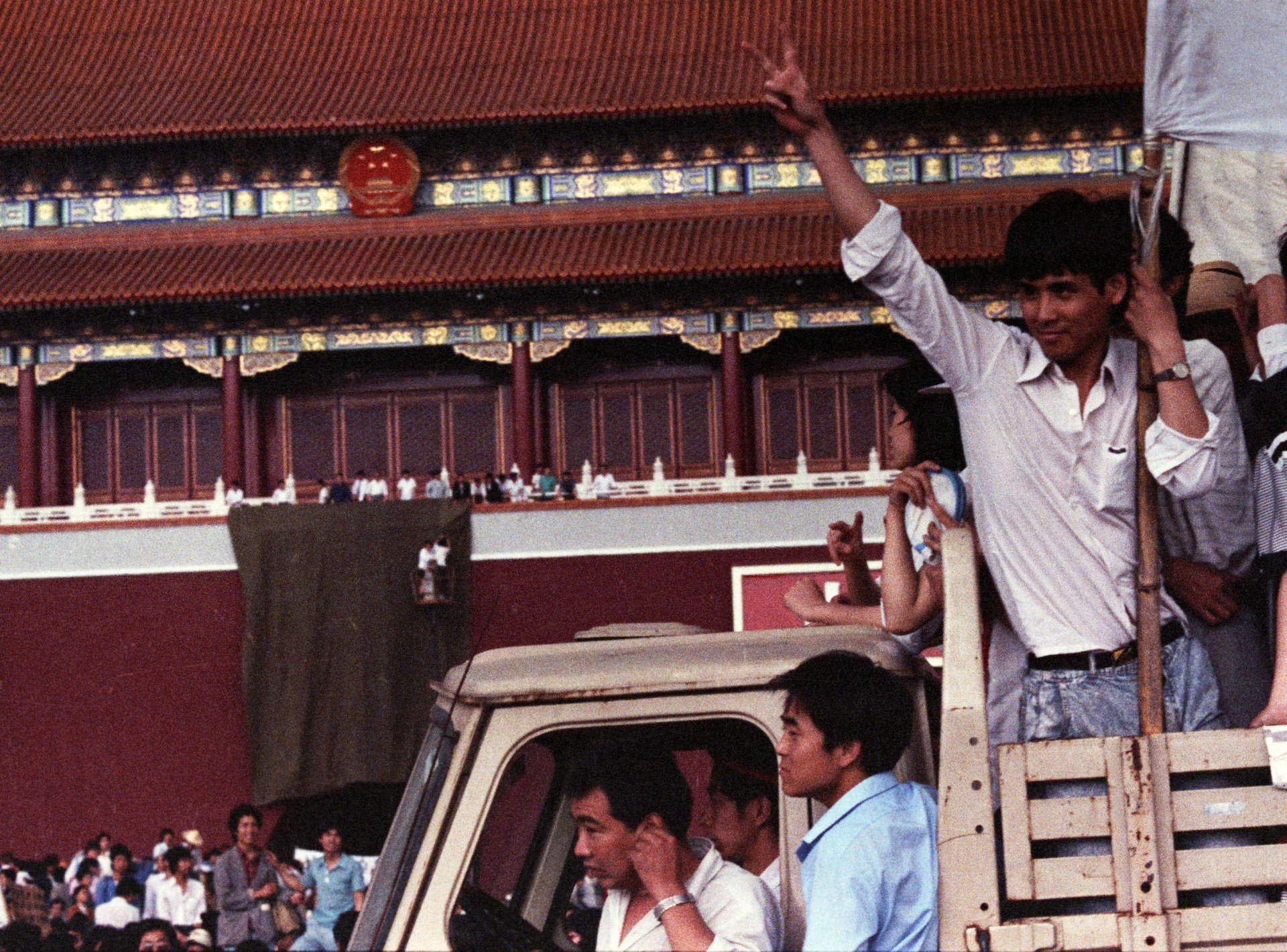Watch: “The Gate of Heavenly Peace,” the groundbreaking—and controversial—documentary on Tiananmen
Drawing from over 250 hours of footage and shot over six weeks, The Gate of Heavenly Peace, a three-hour documentary about the June 4, 1989 crackdown by the Chinese military on protesters in Beijing’s Tiananmen Square, made a splash when it was released in 1995.


Drawing from over 250 hours of footage and shot over six weeks, The Gate of Heavenly Peace, a three-hour documentary about the June 4, 1989 crackdown by the Chinese military on protesters in Beijing’s Tiananmen Square, made a splash when it was released in 1995.
It has been praised as an invaluable cultural document (paywall), a portrait of the student protest movement in all its riveting complexity, and a meticulous account (paywall) of what many consider to be a turning point in the history of modern China. The Chinese government, on the other hand, disliked it so much that it prevented the director Zhang Yimou—who had nothing to do with the project—from attending a premiere of the documentary at the New York Film Festival.
But, perhaps as a reflection of Tiananmen’s fraught history, the Chinese government was not the only group to take issue with the film. For several years, the makers of the documentary were also embroiled in a legal fight with Chai Ling, one of the student leaders of 1989 and a subject of the film who now lives in the US.
In 2007, Chai’s educational software company, Jenzabar, sued the Long Bow Group, the nonprofit film group that made The Gate of Heavenly Peace, accusing it of defamation and trademark infringement. The complaint (pdf, page 2) claimed that the film producers were “motivated by ill-will, their sympathy for officials in the Communist government of China, and a desire to discredit Chai.” A court dismissed all of Jenzabar’s claims in 2010. Jenzabar appealed, and lost again in 2012. In 2013, a court ordered it to pay over $500,000 in attorney fees for the Long Bow Group, ruling that Jenzabar had abused the litigation process by pursuing it for an “ulterior purpose”—namely, “to suppress criticism of Jenzabar’s principals and its corporate practices.”
In 2009, prominent student leaders of the Tiananmen protests sent an open letter to the film’s producers, accusing them of “false reporting and editing,” and in particular of seeking to “intentionally discredit Chai Ling and the student organizers of the movement.”
Central to that allegation was a clip from what has since become a notorious interview with Chai, conducted by an American freelance journalist, on May 28, 1989—the day the students made the fateful decision to stay in the Beijing square, six weeks after demonstrators began gathering there in the thousands. Chai made the following remarks:
My fellow students keep asking me, “What should we do next? What can we accomplish?” I feel so sad, because how can I tell them that what we are actually hoping for is bloodshed, the moment when the government is ready to brazenly butcher the people. Only when the square is awash with blood will the people of China open their eyes. Only then will they really be united. But how can I explain any of this to my fellow students?
Those who took issue with the documentary argued that Chai’s words were mistranslated and taken out of context to paint her as selfishly seeking a bloody crackdown while wanting no part of the violence herself, when in fact she was merely anticipating a repression. As Ian Buruma noted in a 1995 piece for the New York Review of Books, “There is some room for ambivalence here. The word qidai usually means ‘to hope for,’ but can also mean ‘to expect.’ Chai Ling might have meant the former, but the latter would also make sense.”
Below is the documentary, available for free on YouTube in two parts.